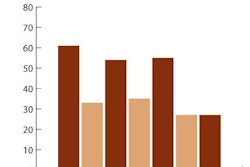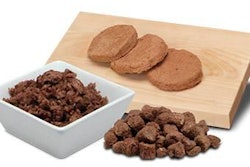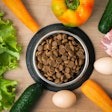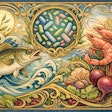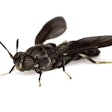This study was triggered by the increased incidence of obesity and metabolic diseases in caged parrots, and evaluated the effects of fiber and food processing on Blue-and-gold macaws.
Four food formulations (0%, 7%, 14% and 21% of sugarcane fiber) processed by pelleting or extrusion were studied, resulting in eight diets. To study digestibility, 48 macaws housed in pairs in cages were used in a block design. Diets containing 0% or 21% sugarcane fiber, pelleted or extrude was fed for four months to evaluate energy intake and blood metabolites. A 2 × 2 × 2 (two fiber levels, two food processing methods and two genders) factorial arrangement with subplots (beginning and end) was used.
Fiber addition reduced protein, fat and energy (p < 0.001) digestibility in both food processing. Pelleted foods presented higher dry matter digestibility and food metabolizable energy (ME) than the extruded ones (p < 0.05). Fiber addition or the type of processing did not change ME ingestion (p > 0.05). The macaws gained body weight (p < 0.05) regardless of the diet (p > 0.05), but females fed with the high-fiber diets did not gain weight (p > 0.05), suggesting a low food ME (12.5 kJ/g).The substitution of the original diet (sunflower seeds, fruits and cooked maize) by the experimental foods decreased the basal concentrations of glucose, cholesterol and triglycerides (p < 0.001). The consumption of pelleted diets reduced serum glucose and cholesterol (p < 0.05).
Results suggest that the pelleted diets were more beneficial and can be used to reduce blood metabolites related to metabolic disorders that are commonly observed in macaws.
Source: R.R. Veloso Jr. et al., 2013. Effects of food processing and fibre content on the digestibility, energy intake and biochemical parameters of Blue-and-gold macaws (Ara ararauna L. - Aves, Psittacidae). JAPAN online April 2013. doi: 10.1111/jpn.12075


